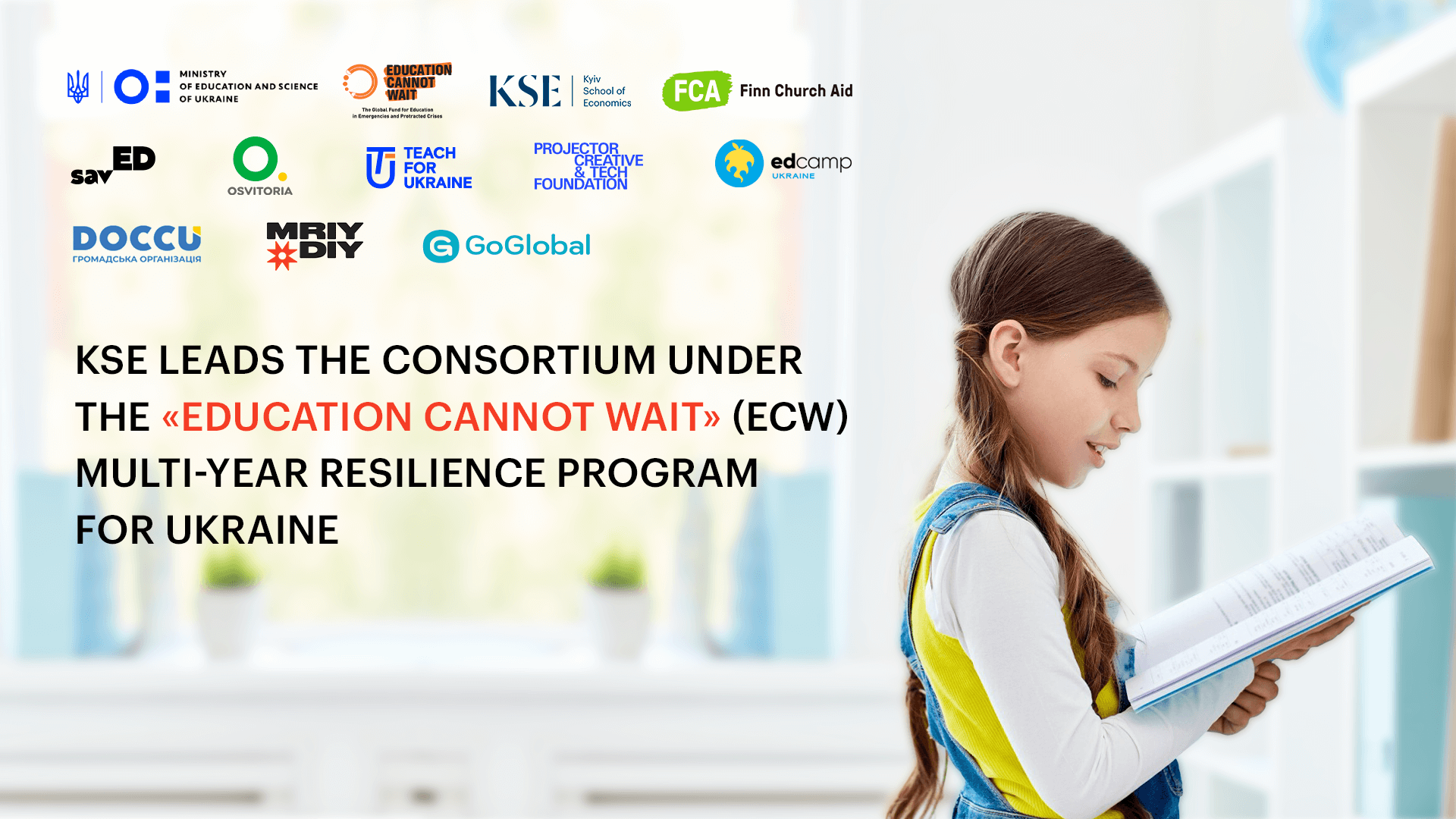- Kyiv School of Economics
- About the School
- News
- KSE leads the consortium under the “Education Cannot Wait” (ECW) Multi-Year Resilience Program for Ukraine
KSE leads the consortium under the “Education Cannot Wait” (ECW) Multi-Year Resilience Program for Ukraine
13 March 2024

The Kyiv School of Economics, in partnership with the Ministry of Education and Science of Ukraine and other public and international organizations, is participating in implementing the “Education Cannot Wait” (ECW) Multi-Year Support Program to ensure the sustainability of education during times of war.
Two powerful consortia will implement the program: a local one led by Kyiv School of Economics and an international one led by the Finnish humanitarian organization Finn Church Aid.
“Children’s education today gives birth to and educates the adults of tomorrow. russia is trying to destroy Ukraine, today and in the future. That is why Russia attacks schools and universities, and constant shelling interferes with learning. Kyiv School of Economics is proud to partner with and lead a consortium of the most motivated and capable Ukrainian educational organizations. We are committed to preserving today’s education and ensuring the development of a sustainable and flexible education system that can withstand the challenges of war and peace in the future,” said Tymofiy Mylovanov, President of KSE.
The local consortium, along with KSE, includes the SavED charitable foundation, Osvitoria, Teach for Ukraine, Projector, and EdCamp Ukraine. Finn Church Aid will implement the program in partnership with DOCCU, MRIYDIY, and GoGlobal.
During a press briefing at the UN Headquarters, Oksen Lisovyi, Minister of Education and Science of Ukraine, noted that today, Ukraine has the willingness and resources not only to survive, but to develop.
“That’s why we perceive the expenditure on education as investments in human capital. Building democracy and a strong, resilient state. The role of education here is crucial, so our efforts are currently focused on restoring access to education for every child. I am incredibly grateful to Education Cannot Wait for their shared vision and support. Thank you for not only helping Ukraine respond to the challenges of war, but also supporting the long-term development of the Ukrainian education system,” the minister added.
The program has three main components: infrastructure support, improving the quality of education, and developing non-formal education.
Infrastructure support includes purchasing devices for children without access to face-to-face or online education and restoring damaged educational institutions.
An essential part of the work will also include repairing and equipping shelters for comfortable, long-term stays of children. The KSE Foundation will handle this area.
The program’s second component will focus on improving the quality of education, including creating digital content to effectively engage children in online learning, developing educational programs and teaching materials within the NUS and vocational education reform, and professional training for teachers and lecturers.
The third is the development of non-formal education, which includes opening digital education centers, measures to catch up for educational losses, and psychological and emotional support for children. The local consortium will also focus on implementing inclusive approaches and gender equality in education.
ECW support and program implementation will promote continuity of teaching and learning by combining humanitarian needs with development projects to support the education system during the war.
The program will be implemented in 2024-2026, and its support will cover more than 40,000 children and 12,000 teachers from the most socially vulnerable categories of the population. The actual implementation will begin in a few weeks. The progress of the program will be available on the official channels of the Ministry of Education and Science and the KSE.
